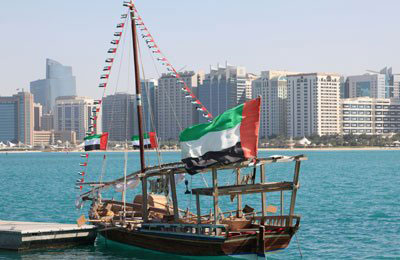
UAE real GDP may slow to 2.7pc in 2013
Dubai, February 11, 2013
The UAE's real gross domestic product (GDP) is expected to grow at a modest 2.7 per cent in 2013 and lower still in 2014 at 2.2 per cent as legacy issues from the financial crisis continue to blight the banking, notably the slow pace of restructuring at large government-related corporates, said a report.
The real non-oil GDP too will grow by four per cent for the next two years - well below its 2001-08 annual average of nine per cent, according to a report by the National Bank of Kuwait (NBK).
Meanwhile, inflation in the emirate is expected to remain the lowest in the region, averaging at 1 to 2 per cent in 2013 and 2014, stated the top Kuwait lender in its 'UAE review for 2013-14'.
NBK said parts of the economy – notably trade, tourism and business services – now seemed to be doing well, helped by the country’s strong trade links with emerging markets, high quality infrastructure and possibly a boost to competitiveness from a sustained spell of low inflation.
However, legacy issues from the financial crisis continue to blight the banking sector, notably the slow pace of restructuring at large government-related corporates. Meanwhile, fiscal consolidation has seen public sector investment heavily scaled back, it added.
According to NBK, the Dubai real estate sector has seen some signs of revival, with rents, prices and transaction volumes all reported to be rising in some areas.
A property market revival would improve the outlook for banks, which still face asset quality pressures from their real estate loans. Central Bank data shows that real estate loans accounted for 21 per cent of banks’ total loan books in September 2012.
Despite recent signs of improvement, transaction volumes and prices remain at least 45 per cent below their boom-time peaks, the supply overhang remains considerable and any improvement in bank property lending is likely to be gradual, the report stated.
The Kuwaiti lender pointed out that the UAE crude oil output had hit a modern day high in September last year at 2.65 million barrels per day.
However, as with other major Gulf oil exporters, the output is expected to ease back over the next two years as the Organization of the Petroleum Exporting Countries (Opec) responds to softer global oil market fundamentals by cutting back its production to maintain oil prices at close to $100 per barrel.
In annual average terms, this leaves oil output unchanged in 2013, followed by a 2 per cent fall in 2014. Affected by this, overall real GDP growth is seen at a modest 2.7 per cent in 2013, and lower still in 2014, even if – ‘on the ground’ – economic conditions are improving.
According to NBK, the inflation is set to have come in at just 0.7 per cent on average in 2012 and will likely remain the lowest in the region in 2013. A significant drop in food price inflation – which fell from 8 per cent y/y in January to 3.3 per cent y/y in October – has been a major factor and helped offset a slower pace of deflation in housing rents.
But even excluding these items, inflation remained tame at just 1.2 per cent y/y in October. Weak credit conditions and below trend economic growth should help keep price pressures in check over the next year, it added.
After a surge of 19 per cent in 2011 due to government assistance to local corporates, the UAE budget spending may have contracted in 2012 as bailout measures dropped out of the annual comparison, said the top Kuwaiti bank.
"Along with strong oil revenues, this should have pushed the budget into surplus (at least including off balance sheet revenue items) for the first time in three years," the NBK report stated.
Smaller surpluses of less than 5 per cent of GDP are seen over the next two years as oil revenues plateau but spending edges higher, said the report.
"Similarly, the surplus on the current account is seen declining from 7 per cent of GDP in 2012 to just 2 per cent in 2014 as a stronger domestic economy sucks in imports but oil export receipts dip," it added.-TradeArabia News Service







